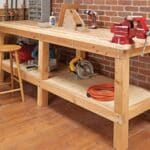Best Tools For Electricians Are variety of specialised instruments are necessary for electricians to perform their work effectively and safely. A top-notch multimeter, which is necessary for measuring voltage, current, and resistance, is among the best instruments for electricians. To ensure correct connections, wire strippers are essential for carefully removing insulation from wires. For a variety of applications, such as fastening screws and anchoring electrical components, a sturdy set of flathead and Phillips screwdrivers is essential. Lineman’s pliers are useful for a variety of tasks because they may be used for both cutting and grasping tasks.
Fish tapes make installation easier by assisting with the pushing of wires through walls or conduits. Without making direct contact, a non-contact voltage tester provides a rapid and secure method of identifying live wires. Furthermore, in poorly lit regions, having a headlamp or flashlight on hand is essential for lighting work areas. Together, these instruments provide electricians the precision and safety needed to diagnose, install, and maintain electrical systems.
Why Choose Best Tools For Electricians?
For a number of reasons, selecting the right tools for electricians is essential.
Accuracy and Precision: Top-notch instruments guarantee precise measurements and diagnostics, enabling electricians to pinpoint and resolve electrical problems precisely.
- Advertisement -
Durability: Tools that can endure regular usage are necessary for electrical work due to its demanding nature. Purchasing sturdy tools can save time and money by reducing the need for frequent replacements.
Safety: A safer working environment is enhanced by high-quality tools. By lowering the possibility of mistakes, precision tools lower the risk of mishaps and electrical hazards. Safety elements like insulated handles give an additional degree of defence.
Efficiency: Time is saved by using effective instruments, which raises overall production. Electricians are able to take on more projects and meet deadlines because they can finish work more quickly and accurately.
Dependability: The greatest tools exhibit dependability across a range of operational scenarios. Having dependable tools guarantees consistent performance, whether handling routine maintenance or complicated installations.
Versatility: Generally speaking, high-quality tools are versatile, enabling electricians to use a single tool for a variety of jobs. Their work is more efficient because of their adaptability.
Prolonged Investment: Purchasing top-notch instruments is a protracted approach. These tools may be more expensive up front, but over time they will save you money because of their performance and longevity.
Professionalism: An electrician’s use of top-notch tools is indicative of their professionalism. The attention to detail and high calibre of work that result from using top-notch tools are frequently valued by clients.
Here is List of The Best Tools For Electricians
- Pliers
- Screwdrivers
- Tape Measure
- Electrical Tape
- Cable Ties
- Electric Drills
- Wire/Cable Lugs
- Wire Strippers
- Fish Tape
- Fishing Rods
- Terminal Block
- Voltage Tester
- Reaming Bit
- Conduit Bender
- Splicing Connector
- Flashlights
- Insulated Gloves
- Safety Glasses
- Rescue Rod/Hook
- Circuit Analyzers
- Circuit Finders
- Electrical Dispatch Software
- Scheduling and Booking Software
- Marketing Software
- Reporting Software
- multimeter
- Wire crimpers
- Coax Connector
- Circuit Analyzer
- Tool Bag
30 Best Tools For Electricians
1.Pliers (Best Tools For Electricians)
Pliers are a highly valuable tool for electricians, providing a flexible solution for a wide range of jobs in the complex world of electrical work. Electricians frequently regard linesman pliers as their go-to tool among the several varieties of pliers that are available. The jaws of these pliers give a firm hold for twisting and handling wires, and their cutting edges are positioned close to the pivot for effective wire cutting. Linesman pliers are indispensable for operations requiring strength and accuracy because of their lengthy handles, which provide higher leverage.
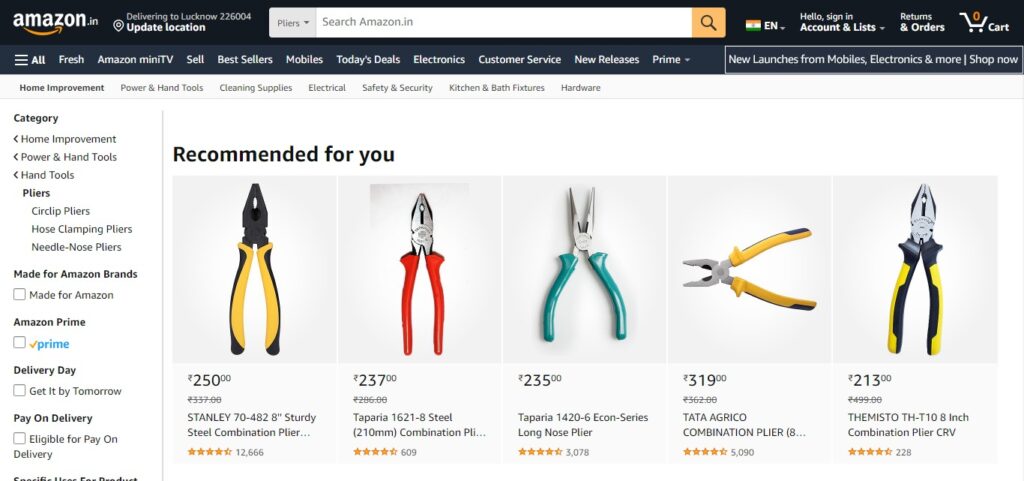
Needles-nose pliers are also useful for working with small parts and getting into tight places. With the help of these pliers, electricians can perform a variety of electrical chores efficiently, such as securely attaching components and cutting and stripping wires. A trusted tool for electricians, high-quality pliers’ ergonomic design and sturdy construction boost productivity and provide a safer, more efficient work environment.
2.Screwdrivers
As important equipment for a variety of electrical installations and repairs, screwdrivers are used by electricians in many different contexts. The most popular screwdriver kinds used by electricians are the flat-head and Phillips-head models. With the aid of these instruments, electricians may tighten or loosen screws in switches, outlets, panels, and other fixtures. In order to prevent electrical shocks during electrical operations, insulated screwdriver handles are especially important.
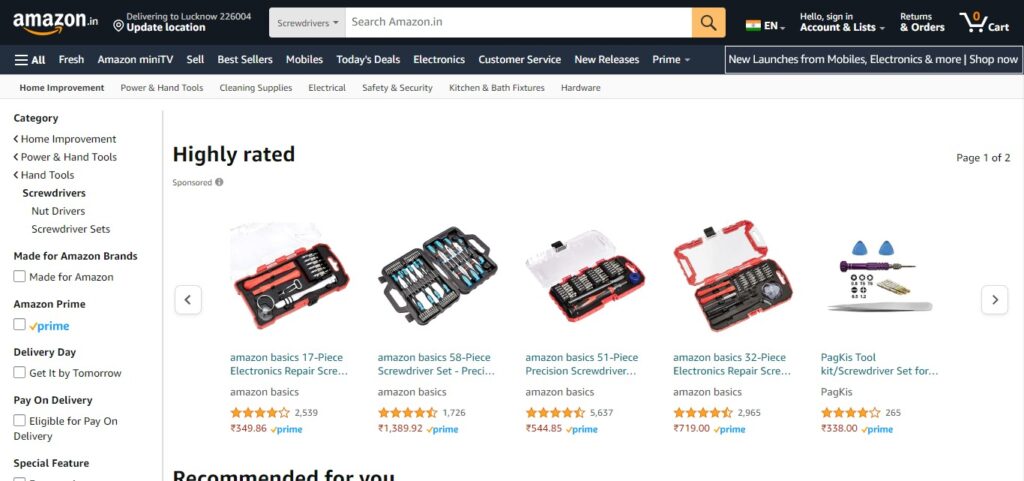
Electrical activities require accuracy and control, and magnetic-tipped screwdrivers make handling screws easier. An extensive assortment of screwdrivers that are suitable for various screw sizes and types is a convenient tool for electricians. Screwdrivers are an electrician’s best friend in the fast-paced world of electrical work, helping them to negotiate a number of applications with efficiency, accuracy, and safety.
3.Tape Measure
One particularly useful equipment for electricians is a tape measure, which provides flexibility and accuracy when measuring distances that are necessary for precise installations and layouts. When determining the measurements of conduits, cables, and areas where electrical components will be put, electricians commonly use tape measures. Accurate measurement is essential to make sure fixtures are positioned correctly and wiring is spaced adequately. The construction of contemporary tape measures frequently incorporates strong, non-conductive materials, improving worker safety around electrical systems.

Because tape measures are retractable, they can be stored conveniently and accessed with ease, which helps to save time when working. A trustworthy tape measure turns out to be an essential instrument in the fast-paced world of electrical work, where accuracy is crucial and helps electricians do their jobs quickly and accurately.
4.Electrical Tape
An essential tool in the toolbox of an electrician is electrical tape, which is used for identifying, insulating, and fastening electrical connections. Usually composed of rubber or vinyl, this adaptable tape adds an additional layer of security around exposed wires to assist avert short circuits and other electrical accidents. Because of its insulating qualities, it is an essential part of securing wire connections and splices, guaranteeing a dependable and safe electrical system.
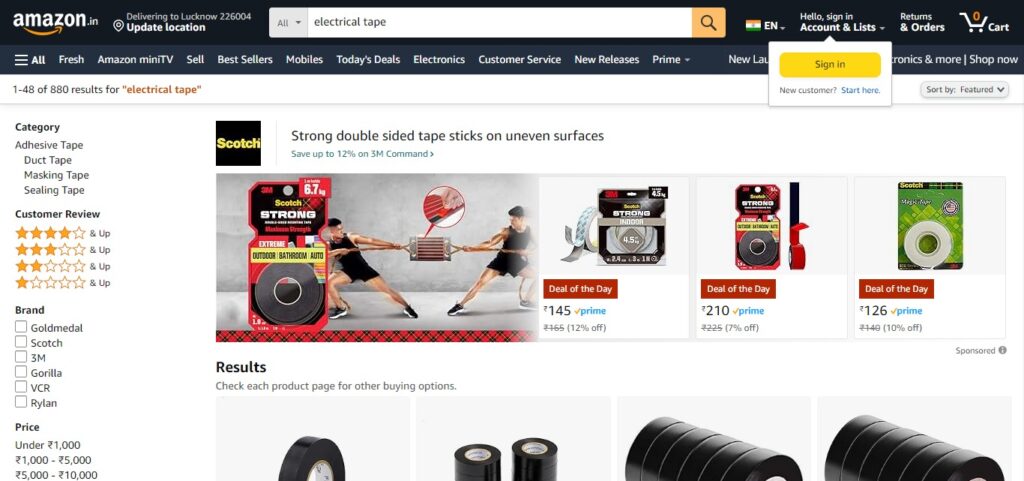
Coloured electrical tape is frequently used by electricians to distinguish between various circuits, which improves the efficiency of maintenance and troubleshooting. Electrical tape can be used for a variety of tasks, such as temporarily fixing broken insulation and bundling wires, because to its strength and flexibility. Electrical tape is an essential equipment in the fast-paced field of electrical work because of its ease and dependability, which allow it to be a simple yet efficient solution for a variety of tasks.
5.Cable Ties (Best Tools For Electricians)
Zip ties, sometimes referred to as cable ties, are indispensable instruments for electricians since they offer an easy-to-use yet incredibly efficient way to arrange and manage wires and cables. These multipurpose fasteners, which are usually composed of sturdy nylon, provide a quick and safe method of bundling and securing electrical cables. This helps to keep a neat and orderly workstation by reducing tangling. The versatility and convenience of use that cable ties offer are greatly appreciated by electricians as they enable effective wire management in a variety of applications, including equipment setups, wiring installations, and maintenance duties.

Tight and secure cinching guarantees that cables stay where they are supposed to, which lowers the possibility of trip hazards and makes identification easier when troubleshooting. Apart from their utilitarian use, cable ties also help electrical installations look tidy and professional. Cable ties are an essential equipment for electricians, helping them organise cables more efficiently and working more productively on a regular basis.
6.Electric Drills
Electric drills are an essential equipment for electricians as they offer a flexible and effective way to drill holes, drive screws, and perform other operations that are necessary for electrical installations and maintenance. Electric drills, which come with numerous drill bit attachments and customisable speed settings, are precise and versatile enough to handle a wide range of materials used in electrical work. The power and control that electric drills provide greatly expedites operations like mounting fixtures, erecting conduits, and securing electrical boxes.

Specifically, cordless electric drills improve accessibility and mobility in a variety of job settings. Electric drills are comfortable and convenient to use, enabling electricians to work effectively for extended periods of time. This is made possible by developments in battery technology and ergonomic design. Electric drills are indispensable tools in the fast-paced world of electrical work, where accuracy and speed are critical. They enable electricians to handle a variety of tasks with ease and efficiency.
7.Wire/Cable Lugs
In the realm of electrical work, wire or cable lugs are crucial instruments that offer a safe and dependable way to join wires to different electrical parts. These lugs, which are usually composed of aluminium or copper, act as connectors between cables and electrical panels, switches, and circuit breakers. Wire lugs allow electricians to make strong, secure connections that minimise the possibility of damage or overheating while guaranteeing effective electrical conductivity.

It is standard procedure to solder or crimp lugs to wires in order to create a strong connection that can resist the stresses of electrical currents. The use of wire/cable lugs in residential and commercial installations enhances the electrical system’s integrity and promotes safety and peak performance. Wire/cable lugs are essential equipment for guaranteeing the dependability and safety of electrical connections because electricians depend on these robust connectors to organise and secure the numerous wires in intricate electrical setups.
8.Wire Strippers
An accurate and effective method of removing insulation from electrical wires, wire strippers are essential tools for electricians. These speciality instruments are available in a variety of styles, and their movable blades make it simple for electricians to remove different gauges of wire. In electrical systems, the ability to remove insulation without causing harm to the underlying conductors is essential for building trustworthy connections. Wire strippers are essential in getting cables ready for termination points like outlets, switches, or connections, whether they are being used in residential wiring, commercial installations, or industrial applications. Certain wire strippers come equipped with extra functionality including the ability to cut and crimp, giving electricians a flexible tool for a range of jobs.

Modern wire strippers have comfortable grips and an ergonomic design that improve user experience and let electricians operate more precisely and efficiently. Wire strippers are essential instruments in the complex world of electrical work, where accuracy is crucial. They make sure that connections are made correctly for safe and efficient electrical installations.
9.Fish Tape
When installing and rerouting electrical wiring via conduits, walls, and ceilings, fish tape is an essential tool for electricians. With the help of this thin, flexible instrument, electricians can precisely pull wires and manoeuvre through confined locations. The tape usually has a leader or hook on one end, which makes it easy to grasp and guide wires through tight spaces. Electricians value fish tape’s adaptability to both residential and commercial projects because it makes running cables and wires more efficient without requiring a lot of drilling or disassembly.

Modern fish tapes are strong and resilient, frequently constructed from steel or fibreglass, so they can resist the rigours of demanding electrical installations. Fish tape is an indispensable tool in the fast-paced world of electrical work, where running and organising wires is a regular difficulty. It streamlines the process and increases the overall effectiveness and success of electrical projects.
10.Fishing Rods (Best Tools For Electricians)
Although they may not be thought of as tools used by electricians, “fish tape” is a particular tool in the electrician’s toolbox that has a similarity to a fishing rod. During installations, electrical wires are pulled and guided through conduits and confined locations using fish tapes, which are flat, flexible instruments. Fish tape is used by electricians to negotiate intricate pathways; it works similarly to a fishing rod and line. These tapes are available in a variety of lengths and materials, and they frequently have a leader or hook to attach to wires at the end.
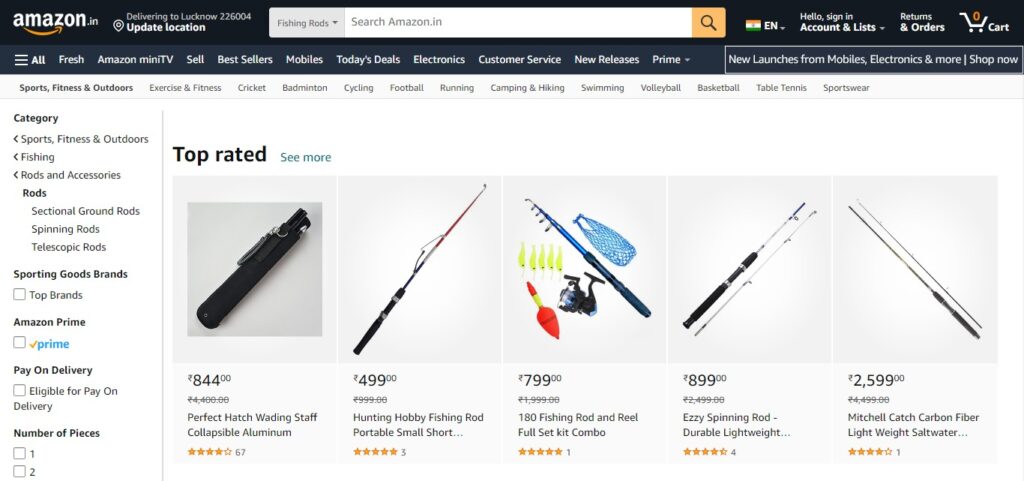
Fish tapes and fishing rods are comparable, highlighting the dexterity and skill needed in the electrician’s craft. Successful electrical installations and wiring projects depend on the ability to guide wires through complex channels, much like fishing. Fish tapes are a special and essential tool for electricians in this situation, illustrating the surprising connections between two seemingly unrelated tasks.
11.Terminal Block
For the safe and orderly connection of numerous electrical wires within control panels, distribution boards, or other electrical inclosures, terminal blocks are an essential tool for electricians. These blocks come with a sturdy insulating base and metal connectors for connecting and terminating wires. Terminal blocks are valued by electricians for their ability to efficiently arrange wiring in a clean, easily accessible manner, which makes maintenance, troubleshooting, and modification tasks simpler.
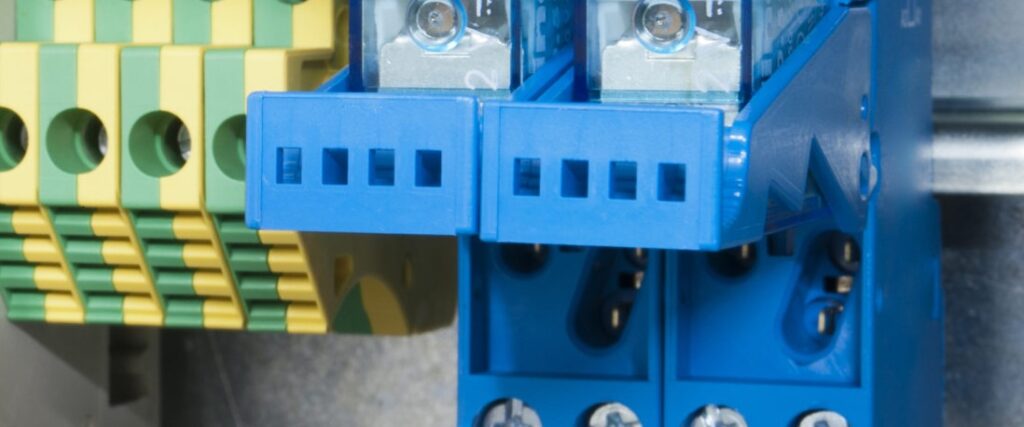
With a variety of options available, including screw-type, spring-clamp, and push-in terminal blocks, electricians can select the best one for their particular needs. In order to provide dependable electrical connections and lower the possibility of exposed or loose wires endangering performance and safety, terminal blocks are essential. Terminal blocks are a vital component of an electrician’s toolset because they maintain the integrity and orderliness of electrical systems in both residential and commercial settings.
12.Voltage Tester
One of the greatest tools for electricians is a voltage tester, which offers a fast and accurate way to determine whether electrical voltage is present in a circuit or not. Before starting work, this portable tool helps electricians locate live wires and potentially dangerous situations, which is a critical part of their safety protocol. Different types of voltage testers, such as multimeters and non-contact testers, are available to meet different needs. Because it reduces the chance of electrical shocks, the non-contact voltage tester is especially useful for electricians as it enables them to identify live wires without making physical touch.

In contrast, multimeters offer a wider range of electrical measures, such as resistance, voltage, and current. Voltage testers are an essential tool for maintenance, installation, and troubleshooting activities because of their accuracy and versatility, which allows electricians to perform safely and effectively in a variety of electrical conditions. A trustworthy voltage tester is still an essential equipment in the continually changing world of electrical work, helping to guarantee the security and productivity of electricians in their day-to-day duties.
13.Reaming Bit
An exceptional tool for electricians is the reaming bit, which is made especially to make the operation of widening and deburring conduit apertures easier. After drilling, electricians may easily remove burrs and sharp edges from the interior of conduit pipes with this tool’s conical shape and sharp edges. This guarantees a tidy and expert finish in electrical installations in addition to facilitating the smooth movement of wires. Reaming bits are frequently a crucial component of power drills, providing ease and effectiveness in one

Reaming bits save time during conduit preparation, which makes wire fitting easier and more accurate. This is something that electricians value. The reaming bit is a vital instrument that enhances the overall quality and safety of electrical installations in the complex field of electrical work, where efficiency and precision are crucial.
14.Conduit Bender
Conduit benders are an essential tool for electricians because they offer a precise and dependable way to shape electrical conduits. This equipment plays a crucial role in shaping conduits to fit the precise angles and shapes needed for electrical installations. Usually made to be used with either flexible or rigid metal conduit, conduit benders enable electricians to make precise bends without kinking or harming the conduit. To guarantee the accuracy required for various applications, the instrument frequently has degree markings or angle guides.
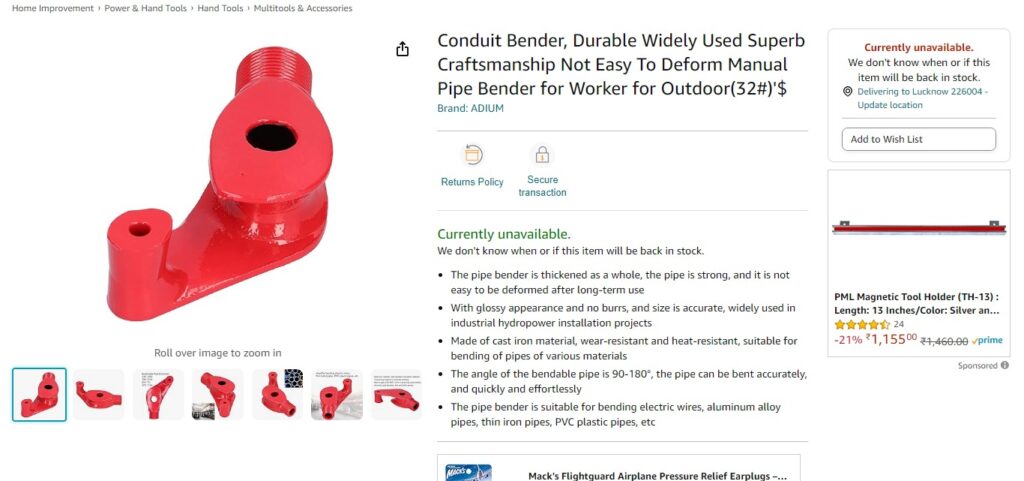
Conduit benders are highly valued by electricians because they make the installation process more efficient and allow for the neat and orderly routeing of electrical cabling through intricate channels. Conduit benders are extremely useful in a variety of applications, ranging from home wiring to commercial and industrial electrical operations, due to their adaptability. A conduit bender is more than simply a tool in the hands of an electrician; it’s an essential tool for creating electrical installations that are both code-compliant and professional.
15.Splicing Connector (Best Tools For Electricians)
Splicing connectors are a vital tool for electricians since they offer a safe and effective way to connect electrical cables. These connectors are available in a variety of forms, such as push-in, crimp, and twist-on wire connectors, each of which has a distinct function during the splicing procedure. Splicing connectors are used by electricians to make strong, secure connections that prevent wires from coming loose or becoming exposed. While crimp connectors, when crushed using a crimping tool, offer a strong mechanical connection, twist-on connectors make the operation simpler by enabling electricians to manually twist wires together. Push-in connectors provide a quick and easy substitute by doing away with the requirement for crimping or twisting.

Splicing connections are useful for a variety of electrical jobs, including connecting fixtures, extending wires, and fixing damaged cables because of their adaptability. Splicing connectors turn out to be among the best instruments in the dynamic field of electrical work, where accurate and long-lasting connections are crucial. They expedite the wiring process and guarantee the integrity of electrical systems.
16.Flashlights
Flashlights are a vital equipment for electricians because they provide the necessary illumination in the small, frequently dark spaces where electrical work is done. For safety and visibility when working in electrical panels, crawl spaces, or attics, a dependable flashlight is essential. Electrical professionals especially like LED flashlights because of their long lifespan, energy efficiency, and concentrated, strong beams. Because flashlights are small and lightweight, electricians can easily penetrate complex wiring systems and spot possible problems.

Furthermore, some flashlights have characteristics that increase their adaptability in various work conditions, such magnetic bases or adjustable foci. An electrician’s lifeline in an emergency, during a power outage, or during night labour is a reliable flashlight. An excellent flashlight is a necessary instrument in an electrician’s toolbox that guarantees accuracy, effectiveness, and safety when performing any electrical work. It’s not just a handy accessory.
17.Insulated Gloves
Insulated gloves are an essential safety precaution against electrical shock and contact with live circuits, making them one of the most valuable tools for electricians. Because the materials used to make these gloves have a high dielectric strength, they efficiently stop electric current from passing through the hands. Because they frequently handle live wires and electrical components, insulated gloves are an essential safety precaution for electricians. The gloves are frequently color-coded to show the degree of protection they provide and are made to adhere to strict electrical safety regulations.

To reduce the risk of electrical injury, electricians wear insulated gloves when doing a variety of activities, including installation, maintenance, and troubleshooting. It is impossible to overestimate the significance of these gloves in an electrician’s toolbox since they provide a vital barrier that keeps the worker safe from potential electrical risks and helps to avoid major accidents.
18.Safety Glasses
As a vital first line of defence against potential eye risks in the dynamic and frequently dangerous sector of electrical work, safety glasses are an indispensable equipment for electricians. Drilling, cutting, and handling items that could spark or produce debris are common activities for electricians. Impact-resistant lenses in safety glasses protect the eyes from these possible hazards, reducing the risk of injury and maintaining a clear field of vision when doing difficult jobs. Safety glasses also provide defence against airborne particles that can harm eyes, such as chemicals, dust, and other particles.

Contemporary safety glasses are designed to be comfortable and lightweight, making them ideal for prolonged usage and improving overall safety compliance among electricians. In an occupation where accuracy and focus on details are critical, adding safety glasses to an electrician’s equipment protects their eyes while also creating a more secure and safe working environment.
19.Rescue Rod/Hook
For electricians, a rescue rod or hook is an essential equipment, particularly in scenarios where safety is of the utmost importance. Without requiring direct contact, this multipurpose tool can be used to gently guide or remove wires, cables, or other objects out of tight locations. A rescue rod can be very helpful in removing tools, wires, or other objects from accidentally entangled situations without endangering the electrician. The rod’s hook at the end makes it incredibly useful for intricate electrical installations and maintenance jobs since it enables precise and controlled manoeuvring.

In addition to increasing the effectiveness of the electrician’s work, the rescue rod is essential in emergency situations. Rescue rods are vital tools in any electrician’s toolbox because of their capacity to reach and retrieve goods in difficult-to-reach locations, which enhances overall safety and project success.
20.Circuit Analyzers (Best Tools For Electricians)
Because they provide a thorough method for evaluating the reliability and performance of electrical circuits, circuit analysers are among the most valuable instruments for electricians. Known under several names, including voltage testers and circuit testers, these tools are essential for finding errors, spotting electrical anomalies, and verifying that circuits are functioning within the intended bounds. With the use of circuit analysers, electricians may efficiently troubleshoot and perform preventative maintenance by measuring voltage, checking for continuity, and identifying possible wire concerns.

Ground Fault Circuit Interrupter (GFCI) testing is one of the many sophisticated capabilities that modern circuit analysers frequently have, making them useful instruments for use in commercial, industrial, and domestic settings. Circuit analysers are essential tools for spotting possible risks, averting electrical breakdowns, and preserving the general effectiveness and safety of electrical systems because of their capacity to swiftly and precisely evaluate the state of electrical circuits. An trustworthy circuit analyser is a vital piece of equipment in any electrician’s toolbox for fostering a safe and efficient electrical infrastructure.
21.Circuit Finders
Circuit finders, sometimes referred to as tone generators or circuit tracers, are essential tools for electricians because they offer a quick and easy way to find particular circuits inside a complicated electrical system. These gadgets function by passing a signal via the wire, which a matching receiver can then follow. This feature is especially helpful in troubleshooting situations where it can save a lot of time and effort to rapidly locate the correct circuit. To make it easier to discover and deal with specific circuits during installs, repairs, or maintenance chores, electricians utilise circuit finders to trace wires behind walls, in conduits, or through elaborate electrical panels.

Circuit finders are vital equipment for electricians working in residential, commercial, and industrial settings because of their adaptability, which helps them meet the high standards of accuracy and efficiency needed in the ever-changing electrical industry. A dependable circuit finder becomes an indispensable tool in the electrician’s toolbox, simplifying the identification and maintenance of electrical circuits.
22.Electrical Dispatch Software
The way electricians manage and arrange their workflow has been completely transformed by electrical despatch software, which has grown to be an indispensable tool. By streamlining job scheduling, dispatching, and communication processes, this cutting-edge software increases productivity and efficiency all around. With the help of this programme, electricians can efficiently manage resources, plan routes, and give clients real-time updates. By enabling smooth communication between dispatchers and field techs, it speeds up response times and enhances customer support.

Furthermore, a lot of electrical despatch software interfaces with other products, making it possible to manage projects, create invoices, and maintain better records. Electrical despatch software is a vital tool for electricians in a time when technology is revolutionising many industries. It provides a comprehensive answer to the problems associated with task coordination and communication in the fast-paced and dynamic field of electrical work.
23.Scheduling and Booking Software
Software for scheduling and organising appointments has been a game-changer for electricians, greatly increasing the productivity and organisation of their everyday work. Electricians may easily assign tasks, schedule appointments, and organise their work with the help of this programme. Scheduling software helps electricians manage work assignments, cutting downtime and maximising productivity with its user-friendly interfaces and straightforward capabilities. Appointments are frequently scheduled online by clients, making the process easier and more convenient for both parties—electricians and clients.

Real-time updates and automatic reminders combined improve communication and guarantee that appointments are kept on time. Additionally, this software’s analytical features offer insightful information on business trends and workload distribution. Scheduling and booking software is a crucial tool that electricians may use to improve their overall business efficiency, client satisfaction, and service delivery in the highly competitive electrical industry.
24.Marketing Software
Marketing software has become an essential tool for electricians looking to expand their reach, enhance their online presence, and attract new customers in a competitive market. These sophisticated tools enable electricians to create targeted marketing campaigns, manage customer relationships, and analyze the effectiveness of their promotional efforts. With features such as email marketing, social media management, and search engine optimization, marketing software allows electricians to engage with their audience, build brand awareness, and generate leads.

Moreover, it assists in tracking key performance indicators, helping electricians refine their marketing strategies based on data-driven insights. In a digital age where an online presence is crucial, marketing software stands out as a key asset for electricians, offering a comprehensive solution to navigate and thrive in the evolving landscape of marketing and customer acquisition.
25.Reporting Software (Best Tools For Electricians)
For electricians, reporting software has grown to be a useful tool since it provides an effective means of generating, organising, and presenting crucial data about their operations and projects. Electricians can generate comprehensive reports on a range of areas of their job, such as project schedules, expenses, materials utilised, and the state of task completion, with the help of this programme. Producing thorough reports is not only helpful for project management, but it also makes it easier to communicate with clients, stakeholders, and team members. Electricians can customise reports to meet project requirements or industry standards by using the customisable templates that reporting software frequently offers.

Reporting software helps electricians make wise decisions and continuously enhance their operations with tools like analytics and data visualisation. Reporting software is a vital instrument that contributes to the overall efficiency and success of electrical projects by streamlining administrative activities in the dynamic sector of electrical work, where documentation and communication are critical.
26.Multimeter
An essential and adaptable instrument for electricians, the multimeter is vital to the diagnosis and troubleshooting of electrical systems. With the ability to monitor voltage, current, and resistance all in one portable tool, this gadget gives electricians a thorough understanding of the state of circuits and individual parts. In order to ensure the safety and proper operation of electrical installations, multimeters are crucial for measuring voltage levels, confirming continuity, and locating problems. Electricians rely on multimeters to provide precise and timely data for tasks like testing outlets, determining wire resistance, and debugging intricate circuits.

Professionals may easily utilise digital multimeters because of their clear and accurate results, which are a result of technological improvements. Multimeters are useful for fieldwork because of their compact and portable design, which enables electricians to carry around an all-in-one diagnostic equipment that is essential for repairing electrical systems and guaranteeing the dependability of installations. A trustworthy multimeter is a necessary tool in an electrician’s toolbox for productive and successful electrical work.
27.Wire Crimpers
Wire crimpers are essential tools for electricians, providing a reliable and efficient means of creating secure and durable electrical connections. These tools are designed to compress connectors or terminals onto the end of a wire, ensuring a tight and reliable bond. Electricians use wire crimpers for various applications, such as terminating wires within electrical boxes, connecting components, or creating splices. The ratcheting mechanism on high-quality crimpers ensures consistent and uniform crimps, reducing the risk of loose connections that could compromise electrical systems.

With different crimping dies or jaws to accommodate various wire sizes and connector types, these tools offer versatility for a range of electrical tasks. The ergonomic design and comfort grips of wire crimpers enhance user experience during extended use, making them indispensable tools in an electrician’s toolkit. In the intricate field of electrical work, where precision and reliability are paramount, wire crimpers contribute significantly to the safety and effectiveness of electrical installations.
28.Coax Connector
Coax connections are an indispensable tool for electricians, especially when it comes to audio-visual and telecommunications installations. These connectors are essential for creating dependable connections for coaxial cables, which are frequently used to send audiovisual data, internet services, and cable television signals. Coax connectors are used by electricians to fasten and terminate coaxial cables, guaranteeing optimal signal transmission free from interference and signal deterioration. Different applications and sectors are served by the diversity of coax connectors available, including F-type and BNC connectors.

To ensure safe and correct terminations, electricians frequently use specialised instruments like coaxial cable strippers and crimping tools. Accurate coax connection attachment is essential for preserving signal integrity. Coax connections continue to be vital tools for electricians in a time when connectivity is fundamental to contemporary life, guaranteeing the smooth and dependable transfer of data and signals in a variety of residential and business settings.
29.Circuit Analyzer
With its comprehensive solution for assessing the integrity and performance of electrical circuits, the circuit analyser is an essential tool for electricians. With the use of this sophisticated instrument, electricians may evaluate a circuit’s voltage levels, continuity, and any wiring problems. Circuit analysers’ features, such as Ground Fault Circuit Interrupter (GFCI) testing, help to detect any electrical risks and guarantee that safety regulations are followed. Circuit analysers are tools that electricians can use to troubleshoot issues, confirm correct wire layouts, and improve the overall safety of electrical systems.

Handheld and portable circuit analysers are useful for both home and business applications due to their portability. The circuit analyser proves to be an indispensable instrument for electricians, who must prioritise accuracy and safety in their job. It helps them to identify problems precisely, maintain electrical systems, and provide a safe work environment.
30.Tool Bag (Best Tools For Electricians)
An electrician’s tool bag is their trusted companion, essential for tackling a diverse range of tasks with precision and efficiency. A well-equipped tool bag ensures that electricians are prepared for any job that comes their way. Among the best tools for electricians are a quality set of screwdrivers, including both flathead and Phillips varieties, as these are fundamental for securing electrical components. Additionally, a multimeter is indispensable for measuring voltage, current, and resistance, aiding in diagnosing electrical issues accurately. Wire strippers and crimping tools are crucial for handling and terminating wires, facilitating seamless installations.

A reliable pair of pliers, such as needle-nose and lineman’s pliers, are versatile tools for gripping, bending, and cutting wires. A voltage tester is another indispensable item to ensure the safety of the electrician by detecting live circuits. Finally, a high-quality flashlight is a must-have for illuminating dark spaces and enhancing visibility while working. In essence, a well-curated tool bag not only reflects an electrician’s professionalism but also empowers them to deliver top-notch services in the dynamic field of electrical work.
What Is Look For In Best Tools For Electricians?
The most effective, safe, and precise tools for electricians are ones that facilitate their work. The greatest tools for electricians should have the following essential components:
Features for Safety: Insulated handles: Electrical shocks are prevented by tools with insulated handles. Non-conductive materials: Using non-conductive tools lowers the possibility of electrical mishaps.
Sturdiness: Premium materials: To ensure lifespan and dependability, look for tools built of sturdy materials. Robust construction: When using a tool, it is less likely to break or malfunction if it is made with a solid construction.
Precision: Precision: To guarantee accurate installations in electrical work, precision measurement and cutting instruments are essential. Calibration: Verify whether routine calibration of the instruments is necessary to preserve accuracy.
Comfortable grip: Hand fatigue during extended use is minimised by ergonomically designed instruments featuring comfortable grips.
Lightweight: Lightweight tools are simpler to use and transport, particularly while working overhead.
Multifunctionality: An electrician can carry fewer items when he or she uses tools that have several uses.
Interchangeable parts: Tools that include parts that can be changed out offer adaptability for a range of uses.
Features Best Tools For Electricians
Certainly! Here are some key features to look for in the best tools for electricians:
insulated handles: Insulated handles are vital for safety since they guard against electrical shocks and guarantee the health of the electrician.
Sturdiness: Durability comes from strong construction and high-quality materials, guaranteeing that tools can handle the rigours of regular usage.
Precision: Electrical work requires precision, thus instruments should provide precise measurements and dependable operation.
Flexibility: Tools are flexible because of their interchangeable parts and several functions, which enable electricians to complete a variety of jobs with fewer tools.
Mobility: Electrical professionals can carry and store their tools more easily thanks to compact, lightweight designs and organisational features like cases that improve portability.
Dependability: Tools with guarantee options and from recognised companies assure dependability and inspire confidence in their abilities.
Usability: Tools with easy-to-use designs, fast modifications, and intuitive features are particularly beneficial for users with different levels of experience.
Digital attributes: Tools function better thanks to digital displays and technological integration, which enable data transfer or remote monitoring and provide precise readings.
Pros And Cons Best Tools For Electricians
Certainly! Here are some general pros and cons of the best tools for electricians:
Pros:
Effectiveness: Superior instruments enhance productivity, enabling electricians to do jobs faster and with greater precision.
Security: Electrical mishaps are less likely when tools include safety features like non-conductive materials and insulated handles.
Sturdiness: Solidly constructed, long-lasting tools last longer and require less maintenance and replacements.
Precision: exact measurement and cutting instruments aid in error prevention and exact installations.
Cons:
Price: For people on a limited budget, the greater initial purchase of high-quality tools may be an obstacle.
Learning Curve: There might be a learning curve for some sophisticated products, meaning it will take some time for users to get used to their features and functionality.
Upkeep: In order to maintain optimal performance, some tools would need to have regular maintenance performed on them. reliance on authority
Intricacy: Tools with plenty of functionality could be more complicated, which could confuse or mislead users if they aren’t properly taught.
Restricted Use Cases: Certain specialised tools might only be useful in specific situations, which limits their applicability to a wider range of jobs.
Conclusion Best Tools For Electricians
In conclusion, an electrician’s tool selection has a significant impact on the effectiveness, security, and general success of their work. The most desirable equipment for electricians combine a number of essential elements that put durability, functionality, and user comfort first. Durability assures the tools’ longevity and lowers the need for frequent replacements, while safety features, including insulated handles and non-conductive materials, are critical in preventing electrical accidents.
The benefits of high-quality tools, such as improved accuracy, speed, and adaptability, add to a more efficient and productive work process. For electricians, ergonomic features and portability are especially useful when working in difficult situations or for extended periods of time.
It’s crucial to balance these advantages against any potential disadvantages, such as the upfront expense of purchasing high-quality equipment. The long-term advantages of these tools—such as their increased dependability and lower replacement costs—often offset their higher initial cost.
With the introduction of digital features and smart tool possibilities brought about by technology’s constant evolution, electricians’ capabilities have been further enhanced. These enhancements, which include technology integration and digital displays, can improve electrical work precision by facilitating data transfer and providing accurate readings.
In the end, performance, safety, and cost are all balanced in the greatest tools for electricians. In order to make sure that these instruments not only satisfy the immediate demands of electricians but also support a successful, safe, and efficient electrical work environment, careful consideration of specific task requirements, adherence to industry standards, and continual maintenance are crucial.
FAQ Best Tools For Electricians
What safety features should I look for in electrician tools?
Look for tools with insulated handles and non-conductive materials to protect against electrical shocks. Safety certifications and compliance with industry standards are also important.
How can I ensure the durability of my tools?
Choose tools made from high-quality materials with solid construction. Regular maintenance and proper storage can also contribute to the longevity of your tools.
Are digital features important in electrician tools?
Digital features, such as displays and technology integration, can enhance accuracy and functionality. They are especially useful for precise measurements and data transfer.
What are some versatile tools every electrician should have?
Multi-functional tools like combination pliers, multi-meters, and adjustable wrenches can help reduce the number of tools you need to carry, enhancing versatility.




